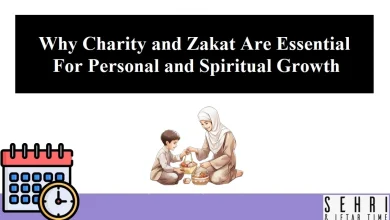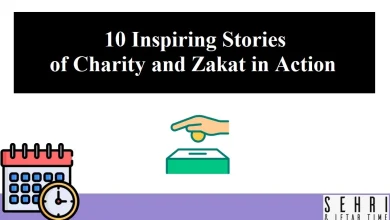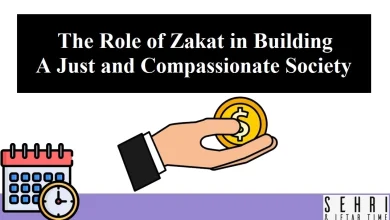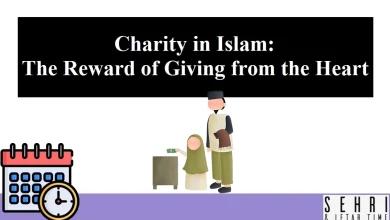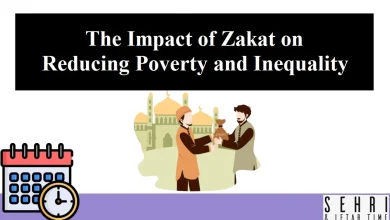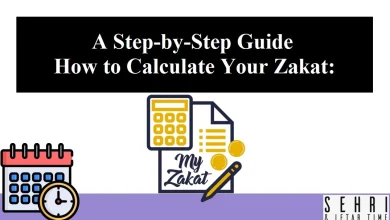The Difference Between Charity and Zakat: What Every Muslim Should Know
The Difference Between Charity & Zakat: What Every Muslim Should Know
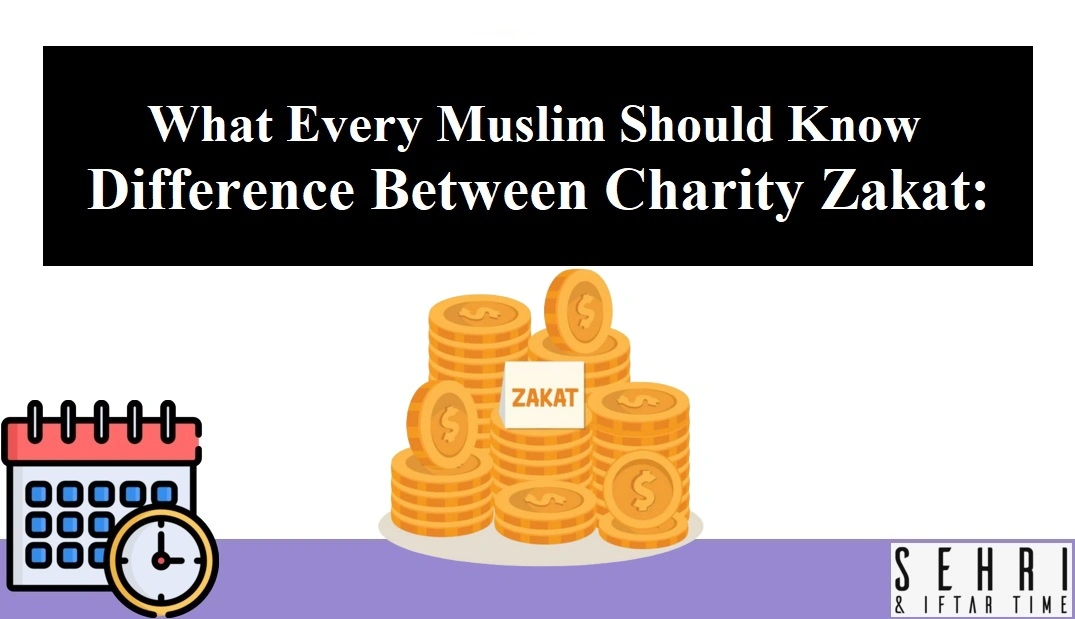
The Difference Between Charity and Zakat: What Every Muslim Should Know: Charity and Zakat are two essential components of Islamic teachings, both rooted in compassion and generosity. While they share similarities in spirit, their distinctions are significant and serve unique purposes in a Muslim’s life and the broader community. Understanding the differences between charity (“sadaqah”) and Zakat is vital for fulfilling religious obligations and fostering a deeper connection with Allah.
What Is Charity (Sadaqah)?
Sadaqah, derived from the Arabic word “sidq” (truthfulness), refers to voluntary acts of kindness or donations given for the sake of Allah. It embodies the spirit of goodwill, sincerity, and altruism. Sadaqah is not limited to monetary contributions; it encompasses any act of kindness, such as a smile, helping someone in need, or offering guidance.
The Prophet Muhammad (peace be upon him) said:
“Every act of kindness is charity.” (Sahih Muslim)
This Hadith underscores the broad scope of sadaqah, making it accessible to everyone, regardless of financial status. Its voluntary nature allows Muslims to give according to their capacity and intentions, promoting a culture of generosity.
What Is Zakat?
Zakat, on the other hand, is a mandatory act of worship and one of the Five Pillars of Islam. It is a specific, calculated portion of a Muslim’s wealth that must be given annually to eligible recipients, as prescribed in the Quran and Sunnah. The term “Zakat” means purification and growth, signifying that giving Zakat purifies wealth and fosters spiritual and material blessings.
Allah commands in the Quran:
“Establish prayer and give Zakat, and bow with those who bow [in worship and obedience].” (Surah Al-Baqarah 2:43)
Unlike sadaqah, Zakat is an obligation for all eligible Muslims who meet the nisab (minimum wealth threshold). It is a cornerstone of Islamic economics, ensuring a fair distribution of wealth and reducing poverty within the community.
Key Differences Between Charity and Zakat
While both charity and Zakat are acts of giving, their differences lie in their nature, requirements, and impact. Here are the primary distinctions:
1. Obligation vs. Voluntariness
- Zakat: A compulsory act of worship that must be fulfilled by eligible Muslims. Neglecting Zakat is considered a serious offense in Islam.
- Charity: A voluntary act that stems from personal generosity and goodwill. There is no fixed amount or obligation associated with sadaqah.
2. Calculation and Specificity
- Zakat: Requires precise calculation (2.5% of surplus wealth) and must meet specific conditions, including nisab and the type of wealth subject to Zakat.
- Charity: No calculations are necessary. Muslims can give as much or as little as they wish, based on their capacity and intentions.
3. Recipients
- Zakat: The Quran identifies eight categories of eligible recipients, including the poor, the needy, those in debt, and travelers in distress (Surah At-Tawbah 9:60). Zakat cannot be given to just anyone; it must be distributed according to Islamic guidelines.
- Charity: Can be given to anyone in need, including non-Muslims, animals, or for causes such as environmental conservation. Its flexibility allows Muslims to address diverse needs.
4. Purpose
- Zakat: Primarily aims to purify wealth, alleviate poverty, and promote social justice. It addresses systemic economic issues and ensures a fair distribution of resources.
- Charity: Focuses on individual acts of kindness and immediate relief. It reflects personal generosity and serves to strengthen bonds of love and compassion.
The Spiritual and Social Impact of Zakat and Charity
Both Zakat and charity play a transformative role in society, fostering solidarity and empathy. However, their impacts differ in scope and intent.
- Zakat’s Structured Impact: By redistributing wealth systematically, Zakat eliminates economic disparity and empowers marginalized communities. It creates a safety net for the less fortunate, ensuring their basic needs are met.
- Charity’s Personalized Impact: Sadaqah enables Muslims to address immediate needs and provide relief in moments of crisis. Its flexibility allows for creative and diverse forms of giving, from building wells to funding education.
On a spiritual level, both acts cultivate a sense of humility and gratitude. By giving, Muslims acknowledge that their wealth and blessings are from Allah, fostering a stronger connection with Him.
Common Misconceptions About Zakat and Charity
Despite their importance, there are common misconceptions surrounding Zakat and charity. Clarifying these misunderstandings helps Muslims fulfill their obligations more effectively:
- Zakat Is Not Optional: Some Muslims mistakenly treat Zakat as voluntary, like sadaqah. However, neglecting Zakat is a serious lapse in religious duty.
- Charity Does Not Replace Zakat: Giving sadaqah does not exempt one from paying Zakat. Both are distinct and complementary acts of worship.
- Zakat Is Not Limited to Ramadan: While many Muslims prefer to pay Zakat during Ramadan for its spiritual rewards, it can be given at any time of the year once it becomes due.
How to Balance Zakat and Charity
To maximize their impact, Muslims should approach Zakat and charity as complementary practices. Here are some practical tips:
- Fulfill Zakat Obligations First: Ensure that your Zakat is calculated accurately and distributed to eligible recipients. This is a mandatory act of worship that takes precedence over voluntary charity.
- Incorporate Charity Into Daily Life: Make sadaqah a regular habit, whether through financial donations or simple acts of kindness. Even small contributions can make a significant difference.
- Support Sustainable Causes: Both Zakat and charity can be directed toward initiatives that promote long-term development, such as education, healthcare, and job creation.
Conclusion
Zakat and charity are powerful tools for creating a just and compassionate society. While Zakat is a structured obligation that addresses systemic needs, charity offers flexibility for individual generosity and immediate relief. Together, they embody the spirit of Islam, promoting social equity, spiritual growth, and human connection.
Understanding and fulfilling the distinct roles of Zakat and charity allows Muslims to enrich their faith, support their communities, and draw closer to Allah. Let us embrace these acts of giving with sincerity and purpose, transforming not only our own lives but also the lives of those around us.
